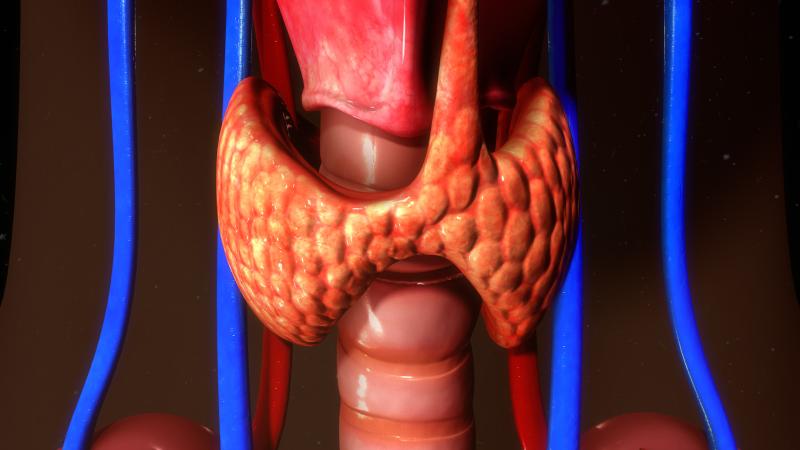
Women with post-traumatic stress disorder (PTSD) are at increased risk of developing thyroid dysfunction, a study reports.
The study included 45,992 women from the ongoing Nurses’ Health Study II. Thirty percent of these women reported having no history of traumatic events, 50 percent reported being exposed to trauma with no PTSD symptoms, and 4 percent reported the highest number (6–7) of PTSD symptoms.
Relative to those who did not experience any trauma, women with the highest number of PTSD symptoms were more likely to have the highest somatotype at age 5 years, have a higher body mass index, smoke frequently, use oral contraceptives, be menopausal, and use ibuprofen medication and antidepressants.
Over a follow-up of 24 years, hypothyroidism occurred in 7,993 women and Graves’ hyperthyroidism in 847. Hypothyroidism showed a dose-response association with PTSD symptoms, with the incidence higher in the group of women presenting with a greater number of PTSD symptoms. This was not observed for Grave’s hyperthyroidism.
In multivariable Cox models, the hazard ratios for hypothyroidism were 1.08 (95 percent confidence interval [CI], 1.02–1.15) in women with trauma with no PTSD symptoms; 1.12 (95 percent CI, 1.04–1.21) in those with 1–3 PTSD symptoms; 1.23 (95 percent CI, 1.13–1.34) in those with 4–5 symptoms; and 1.26 (95 percent CI, 1.14–1.40) with 6–7 symptoms (p-trend<0.001).
The association persisted in sensitivity analyses restricted to outcomes with onset after 2008 when PTSD was assessed.
The present data underscore the importance of awareness for thyroid dysfunction in women with PTSD, according to researchers.